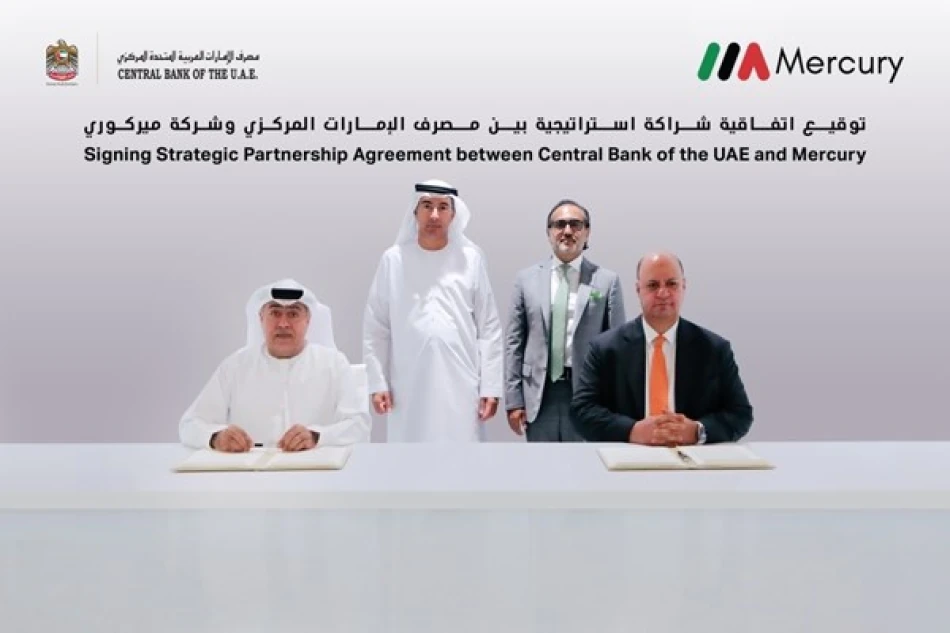
Central Bank and Mercury Launch Project to Boost Financial Market Infrastructure
UAE Central Bank Partners with Mercury to Build Next-Generation Payment Infrastructure
The UAE Central Bank has launched a strategic joint venture with Mercury to establish "Unity Business Services," a new entity designed to modernize the nation's financial infrastructure and strengthen sovereign control over critical payment systems. This public-private partnership represents a significant step in the UAE's broader digital transformation agenda, positioning the country to compete with global fintech hubs while maintaining regulatory independence.
Strategic Partnership Aims to Future-Proof Payment Systems
The newly formed Unity Business Services will support the Central Bank's Financial Infrastructure Transformation Program, focusing on enhancing efficiency, resilience, and business continuity across national financial market infrastructure. The initiative combines the Central Bank's strategic vision with Mercury's specialized expertise in payment infrastructure technology and services.
The formal launch ceremony was attended by key figures including Khaled Mohamed Balama, Governor of the UAE Central Bank, Muzaffar Khokhar, Chairman of Mercury's Board of Directors, and Saif Hamid Al Dhaheri, Assistant Governor for Banking Operations and Support Services.
Maintaining Financial Sovereignty
This partnership underscores the UAE's commitment to maintaining national sovereignty over vital financial systems—a growing priority for Gulf states as they digitize their economies. Unlike wholesale adoption of foreign payment technologies, this joint venture structure allows the UAE to leverage international expertise while retaining control over critical infrastructure.
Regional Competition and Global Positioning
The move positions the UAE to compete more effectively with regional fintech leaders like Singapore and emerging digital payment hubs across Asia. As countries worldwide race to modernize payment infrastructure, the UAE's approach of selective partnerships rather than complete outsourcing offers a template for other nations seeking to balance innovation with sovereignty.
Ibrahim Obaid Al Zaabi, Assistant Governor for Monetary Policy and Financial Stability, emphasized the project's role in building "future-ready payment infrastructure characterized by flexibility and innovation" while supporting nationwide financial inclusion.
Market Implications for Financial Services
For financial institutions operating in the UAE, this infrastructure upgrade promises reduced transaction costs, faster settlement times, and enhanced security protocols. Banks and fintech companies can expect new integration opportunities as the modernized system rolls out, potentially accelerating digital payment adoption across the Emirates.
Digital Transformation Acceleration
Mercury CEO Muzaffar Hamid highlighted the partnership's role in achieving the Central Bank's transformation vision, emphasizing their shared commitment to building "secure, inclusive, and future-equipped payment infrastructure." This collaboration reflects broader trends where central banks increasingly partner with specialized technology firms rather than developing capabilities entirely in-house.
The timing is strategic, as the UAE seeks to solidify its position as a Middle Eastern financial hub while preparing for increased digital currency adoption and cross-border payment innovations. This infrastructure investment could prove crucial as the region navigates evolving international payment standards and potential central bank digital currency implementations.
Most Viewed News

 Layla Al Mansoori
Layla Al Mansoori






